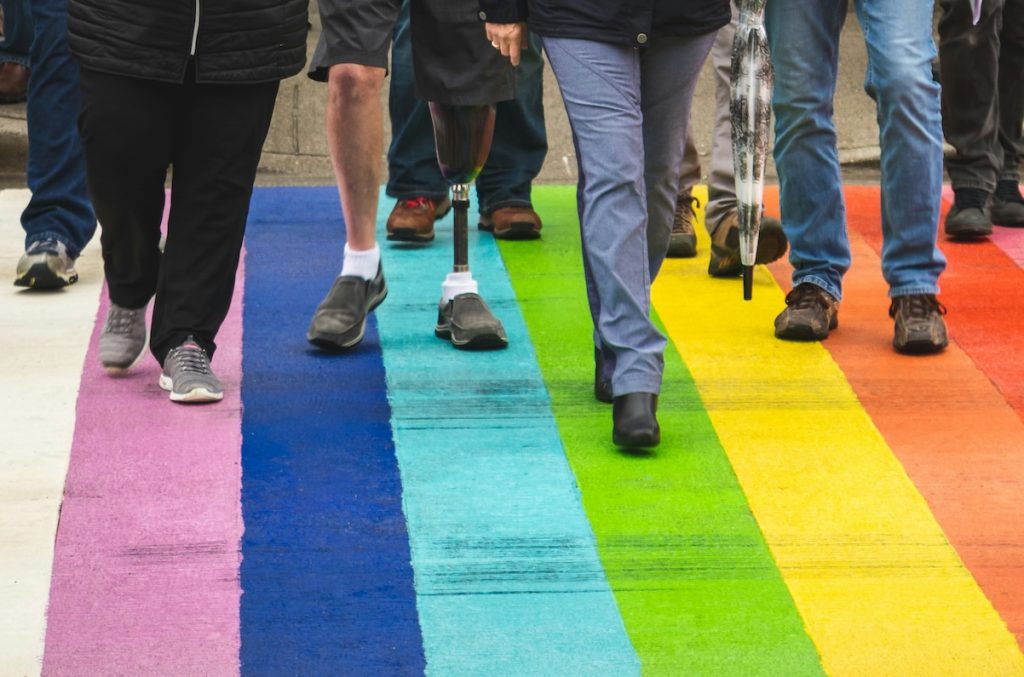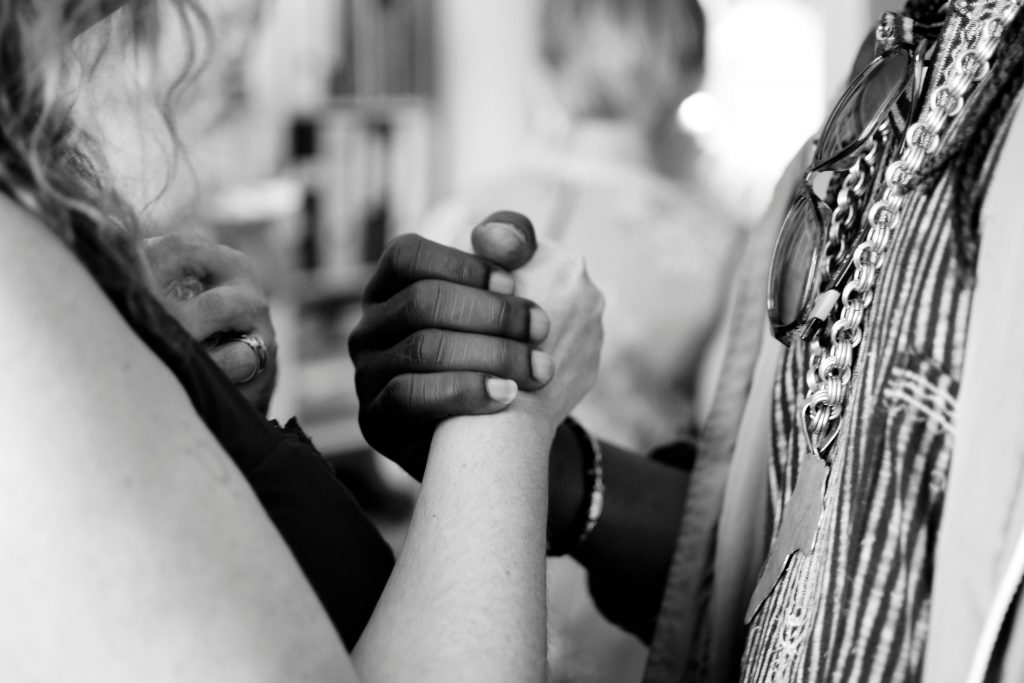
Well being and social care analysis is undertaken to tell and broaden our understanding of various matters and phenomena earlier than we make choices in apply (Nationwide Institute for Well being Analysis, n.d.). Range is a crucial component to contemplate when conducting this type of analysis, however appears to have posed one thing of a problem for each qualitative and quantitative researchers within the social sciences.
Proof means that analysis usually fails to adequately characterize the voices of ethnic minorities, regardless of recognition that these populations expertise a higher burden of illness and poorer remedy outcomes (Good et al., 2017). As analysis can result in the event of remedy tips which affect scientific apply, the absence of those voices implies that therapies generated and utilised as not essentially generalisable, relevant, or useful for ethnic minority populations. This works to amplify well being inequalities.
It’s subsequently necessary to make sure that well being and social care analysis consists of individuals from underrepresented teams. Nevertheless, there are nonetheless obstacles to analysis participation amongst minority teams, resembling lack of know-how and lack of mandatory assets to facilitate engagement (Brown et al., 2014). As such, you will need to develop a complete understanding of analysis experiences, pursuits, and priorities amongst minority teams – which is what Ekezie and colleagues (2023) aimed to do.

As analysis performs a key function within the improvement of healthcare tips, it will be important {that a} numerous vary of voices are represented. If this doesn’t occur, there’s a danger that the therapies developed won’t be generalisable or useful.
Strategies
The REPRESENT examine is a programme of analysis designed to discover analysis priorities regarding well being and social care amongst ethnic minority populations within the UK. The present article presents a number of the mission’s qualitative findings, which had been collected from minority communities, healthcare suppliers (HCPs), and researchers within the East Midlands between Could and September 2022.
The REPRESENT examine was supported by ethnic minority members of the Centre for Ethnic Well being Analysis, alongside members from Affected person and Public Involvement and Engagement (PPIE) teams. Members representing completely different classes inside the Equality Act helped to overview the subject information to ensure it was appropriately related and delicate. The analysis findings had been additionally reviewed to make sure cultural accuracy.
Information was collected by way of focus teams and semi-structured interviews, and analysed utilizing thematic evaluation.
Outcomes
A complete of 52 people participated in both focus teams (n = 45) or one‐to‐one interviews (n = 7). Focus group individuals got here from a various vary of minority backgrounds, together with ethnicity (n = 34; African Caribbean, Jap European, Gypsy Travellers, Somali, South Asian), but additionally sexuality (n = 4) and refugee/asylum seeker standing (n = 7). This was as a result of the authors’ definition of ‘ethnicity’ was broad, and so they needed to incorporate all protected traits below the Equality Act 2010. Interview individuals included researchers, carers, nurses/midwives, and basic practitioners (GPs).
Evaluation generated three important themes:
Theme 1: Well being info and healthcare searching for actions
- Contributors usually looked for healthcare info on-line, utilizing platforms like Google. Nevertheless, the knowledge was generally perceived as complicated or unreliable, and didn’t all the time embrace what they had been in search of. Additional, not everybody had the language abilities or expertise to hunt healthcare info on-line, which led to a delay in help-seeking.
- Group organisations had been seen as a good various for searching for well being info, significantly when occasions had been organised that allowed members of the general public to work together with HCPs.
- Inadequate time, lack of cultural understanding, problem in accessing GP appointments, and former destructive experiences had been obstacles for searching for info by way of official well being channels.
- Key suggestions included:
- Enhancing healthcare communication inside communities;
- Growing entry to bilingual HCPs and group champions;
- Higher entry to personal, one-to-one help.
Theme 2: Medical, well being and social care service experiences
- Subtheme: Entry to providers
- Poor entry to providers was a substantial barrier, together with brief appointment instances, lack of availability, and language obstacles.
- These obstacles meant that some circumstances weren’t taken critically, like power ache, whereas different power circumstances, like most cancers or diabetes, turned extra sophisticated because of delays.
- Subtheme: Discrimination
- Contributors shared how they felt judged, ignored, and dismissed by HCPs, which led to poorer medical consideration.
- Taboos and poor consciousness of psychological well being was additionally influenced by racial or cultural discrimination, which led to an avoidance of providers.
- Key suggestions included:
- Growing early intervention amongst ethnic minorities communities.
Theme 3: Well being analysis
- Subtheme: Analysis understanding, obstacles and motivators
- Throughout communities, there was a low historical past of analysis participation, though some did understand analysis favourably because of previous constructive experiences.
- Incentives had been seen as a option to improve motivation to participate in analysis, however weren’t essentially sufficient on their very own to encourage participation.
- Some individuals had been reluctant to participate in analysis because of perceptions of getting used as “guinea pigs” and a lack of direct profit to them or their communities.
- Key suggestions included:
- Guaranteeing that individuals are instructed about analysis outcomes and the affect it would have on their group;
- Growing group confidence in well being and social care providers;
- Involving and empowering communities with analysis.
- Subtheme: Analysis suggestions
- The most well-liked areas of analysis curiosity had been most cancers, diabetes, hypertension, psychological well being, sickle cell illness, and well being promotion.
- Social care analysis priorities included early intervention, social isolation, substance misuse, and understanding group wants.
- Coaching for HCPs, alongside linguistic help and referral providers had been additionally highlighted as core priorities.

Contributors from minority teams highlighted a spread of obstacles to participating with analysis, together with the notion of no direct profit to themselves or their communities.
Conclusions
The findings from Ekezie et al. (2023) paint a troubling image that emphasises how cultural discrimination and lack of know-how can result in disengagement and underrepresentation of ethnic minority voices inside well being and social care providers and analysis. It additionally supplies perception into how extra components resembling poor service provision, language obstacles, and lack of cultural sensitivity can exacerbate sicknesses, and additional contribute to emotions of apprehension and mistrust.

Ethnic minorities could also be extra more likely to flip to their communities for healthcare recommendation fairly than official healthcare suppliers. Growing group confidence in well being and social care providers is significant for change.
Strengths and limitations
Strengths
- The examine largely makes acceptable use of qualitative strategies for information assortment and evaluation, that are clearly reported in the principle paper. This aids our confidence within the rigour and robustness of the examine and its findings.
- A important power of this examine lies of their collaboration with PPIE contributors. PPIE (affected person and public involvement and engagement) in analysis is necessary as a result of it helps researchers to higher perceive the views of the teams they’re finding out and ensures that their analysis is suitable and relevant. In flip, this has an affect on the data generated by the analysis.
- Though the reporting of beneficial analysis areas inside the principle paper is poor, the authors have offered supplementary supplies which clarify intimately the vary of analysis areas the completely different teams needed to see prioritised. That is actually helpful info that can be utilized by researchers and policymakers to know the wants of those minority populations.
Limitations
- While the researchers took steps to make sure that the main focus teams had been organised primarily based on group and id, some could have discovered it tough to be open and trustworthy about such a private subject in entrance of others. There have been alternatives for one-to-one interviews, however it’s not clear who these had been made obtainable to in the principle paper.
- The authors acknowledge that the pattern was restricted to chose ethnic minority communities from the East Midlands, which reduces the generalisability of the findings to the broader UK inhabitants and different nations.
- The authors briefly point out reflexivity, however haven’t offered a reflexive assertion in the principle paper or supplementary supplies. This makes it obscure the potential affect the analysis group had on their evaluation, which reduces the transparency and confidence within the findings.
- Along with the above, some members of the analysis group had beforehand engaged with a number of the individuals in several initiatives. Once more, as a result of there is no such thing as a reflexivity, it’s tough to inform the affect and potential bias.
- Lastly, it’s not solely clear why the paper first focuses on ethnic minority communities, however switches partway by way of to additionally embrace broader minoritised teams. Whereas accessing and representing these voices is essential, it makes the paper tough to observe.

There are a number of strengths to this examine, together with their use of Affected person and Public Involvement and Engagement (PPIE); however the authors additionally fail to supply a reflexivity assertion that displays how their identities, experiences, values and beliefs could have influenced the analysis.
Implications for apply
Observe
- There’s a clear want for culturally delicate well being and social care providers, with HCPs who’re skilled in understanding cultural ideas of misery. This has been persistently recognized as facilitating entry and engagement with healthcare providers amongst minority ethnic teams (Pilav et al., 2022).
- Construct relationships between providers and communities to enhance belief and facilitate direct communication. This might contain talking on group radio stations, or drop-ins at group centres.
- Be sure that sufferers have enough entry to personal one-to-one help, each in group settings and inside clinics.
Analysis
- When designing analysis that includes minoritised teams, think about the potential obstacles they might expertise in relation to participating in analysis, and proactively implement methods for overcoming these obstacles (e.g., explicitly outlining within the participant info sheet how you’ll be certain that individuals are up to date with the examine outcomes).
- Have interaction communities on the outset of any analysis mission and discover methods to empower them in main analysis actions.
- Conduct analysis that’s centered on the matters that minority communities discover most necessary, and embrace incentives for analysis participation.
Coverage and funding
- Minority communities could also be reluctant to hunt assist for his or her well being because of skilled obstacles. Because of this extra focus and funding needs to be directed in direction of early intervention and guaranteeing that those who need assistance really feel in a position to search it.
- Present funding to minoritised communities to talent up leaders as group champions who can present early recommendation, help, and signposting to well being and social care providers.
- Enhance linguistic help inside well being and social care providers, significantly in areas the place there are massive populations of those that don’t have English as their first language.
- Contemplate which providers and HCPs minority communities already utilise (e.g., pharmacists) and improve funding to help early intervention and signposting.

When designing analysis that includes minoritised teams, you will need to proactively implement strategies for overcoming potential obstacles to analysis engagement.
Assertion of pursuits
None.
Hyperlinks
Major paper
Ekezie, W., Cassambai, S., Czyznikowska, B., Curtis, F., O’Mahoney, L. L., Willis, A., … & Farooqi, A. (2024). Well being and social care expertise and analysis notion of various ethnic minority populations within the East Midlands, United Kingdom (REPRESENT examine). Well being Expectations, 27(1), e13944.
Different references
Bhopal, R. (2004). Glossary of phrases regarding ethnicity and race: for reflection and debate. Journal of Epidemiology and Group Well being, 58(6), 441–445.
Brown, G., Marshall, M., Bower, P., Woodham, A., & Waheed, W. (2014). Boundaries to recruiting ethnic minorities to psychological well being analysis: a scientific overview. Worldwide Journal of Strategies in Psychiatric Analysis, 23(1), 36-48.
Nationwide Institute for Well being Analysis. (n.d.). What’s well being and care analysis? – Be A part of Analysis. Retrieved February 13, 2024, from https://bepartofresearch.nihr.ac.uk/about/What-is-health-and-care-research/
Pilav, S., De Backer, Ok., Easter, A., Silverio, S. A., Sundaresh, S., Roberts, S. & Howard, L. M. (2022). A qualitative examine of minority ethnic ladies’s experiences of entry to and engagement with perinatal psychological well being care. BMC Being pregnant and Childbirth, 22(1).
Good, A., & Harrison, E. (2017). The under-representation of minority ethnic teams in UK medical analysis. Ethnicity & Well being, 22(1), 65-82.


